The Northern Lights are predicted to be visible in parts of the UK on New Year's Eve, offering a spectacular start to the year. The Met Office says clear skies are needed for the best viewing, and the Royal Observatory in Greenwich notes that the further north you are, the better the chances of seeing them.
The Northern Lights are set to dazzle this New Year's Eve, offering some lucky Brits a magical start to the New Year. According to the Met Office, those in Scotland, Northern Ireland and parts of northern England might be able to witness the stunning spectacle. However, whether you'll get a glimpse or not largely depends on tonight's weather, which has already threatened numerous New Year's events across the UK.
If the skies remain clear, you're in for a treat as these conditions are perfect for viewing the display - a result of solar flares colliding with Earth's magnetic field. The Royal Observatory in Greenwich states that the Northern Lights are more visible the further north you are, but due to increased solar activity recently, they've been spotted as far south as Cornwall. While solar storms can disrupt satellites, the Met Office assures it's unlikely that tonight's activity will cause communication issues. There's been an increase in solar storms as the Sun undergoes a period of heightened activity expected to continue into next year, The Express reports. Solar storms involve massive clouds of electrically charged particles being ejected from our nearest star. Royal Observatory Astronomer Tom Kerss spilled the beans to The Express saying, 'These particles then slam into atoms and molecules in the Earth's atmosphere and essentially heat them up. We call this physical process 'excitation', but it's very much like heating a gas and making it glow.', reports the Mirror. He explained further, 'What we are seeing therefore are atoms and molecules in our atmosphere colliding with particles from the Sun. The aurora's characteristic wavy patterns and 'curtains' of light are caused by the lines of force in the Earth's magnetic field.' Tom added: 'The lowest part of an aurora is typically around 80 miles above the Earth's surface. However, the top of a display may extend several thousand miles above the Eart
NORTHERN LIGHTS SOLAR STORMS AURORA WEATHER SPACE
United Kingdom Latest News, United Kingdom Headlines
Similar News:You can also read news stories similar to this one that we have collected from other news sources.
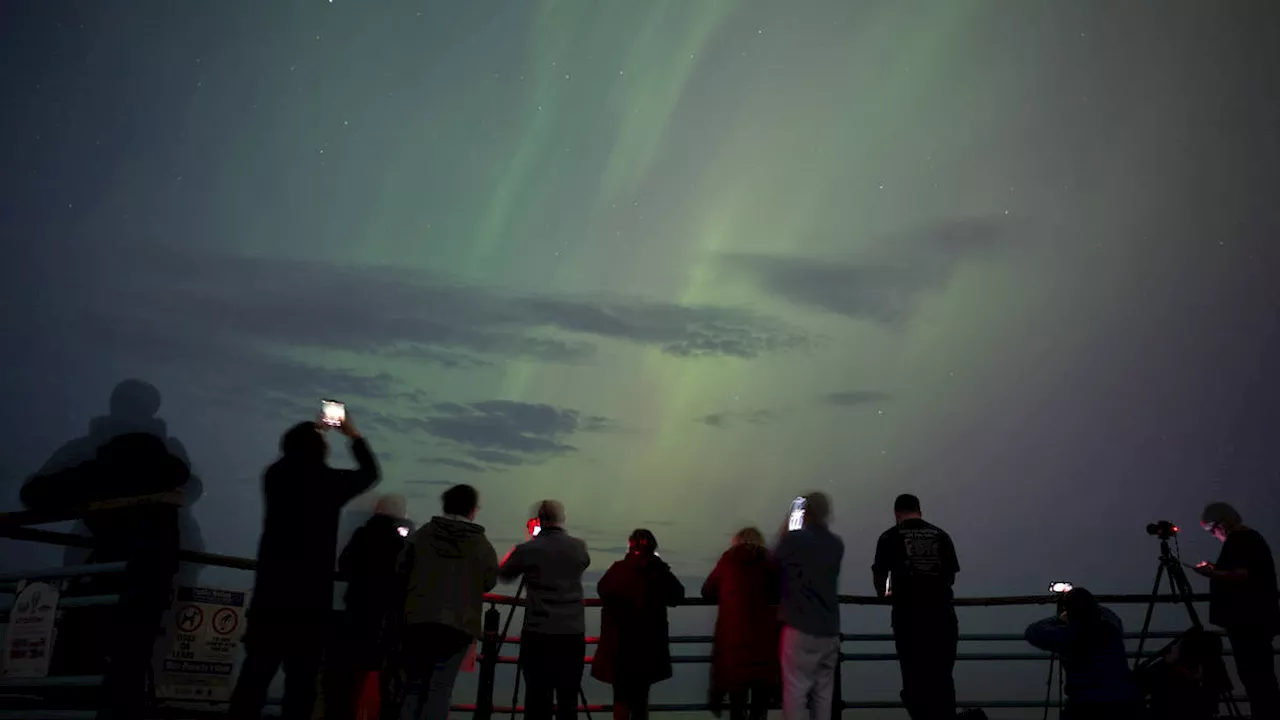 Northern Lights Could Light Up UK Skies on New Year's EveA Coronal Mass Ejection (CME) is predicted to reach Earth on December 31st, potentially sparking the Northern Lights across parts of the UK.
Northern Lights Could Light Up UK Skies on New Year's EveA Coronal Mass Ejection (CME) is predicted to reach Earth on December 31st, potentially sparking the Northern Lights across parts of the UK.
Read more »
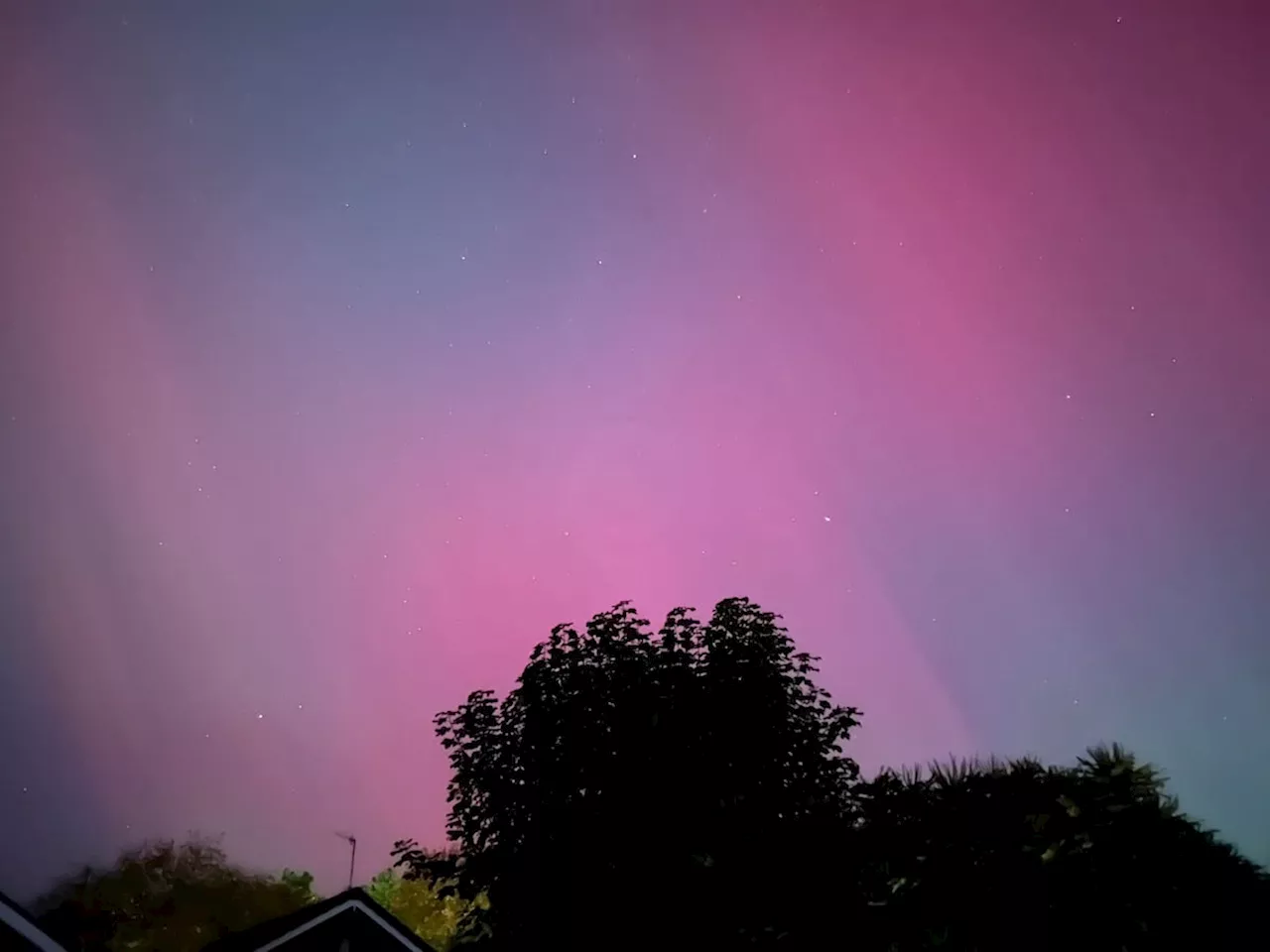 Northern Lights Could Light Up New Year's Eve in ShropshireA coronal mass ejection from the sun is expected to arrive on New Year's Eve, potentially triggering the Aurora Borealis. Shropshire sky-watchers have a chance to see the Northern Lights if the clouds clear.
Northern Lights Could Light Up New Year's Eve in ShropshireA coronal mass ejection from the sun is expected to arrive on New Year's Eve, potentially triggering the Aurora Borealis. Shropshire sky-watchers have a chance to see the Northern Lights if the clouds clear.
Read more »
 Scotland to be Dazzled by Northern Lights in New YearThe Met Office predicts enhanced visibility of the Aurora Borealis in Scotland due to a rare solar event.
Scotland to be Dazzled by Northern Lights in New YearThe Met Office predicts enhanced visibility of the Aurora Borealis in Scotland due to a rare solar event.
Read more »
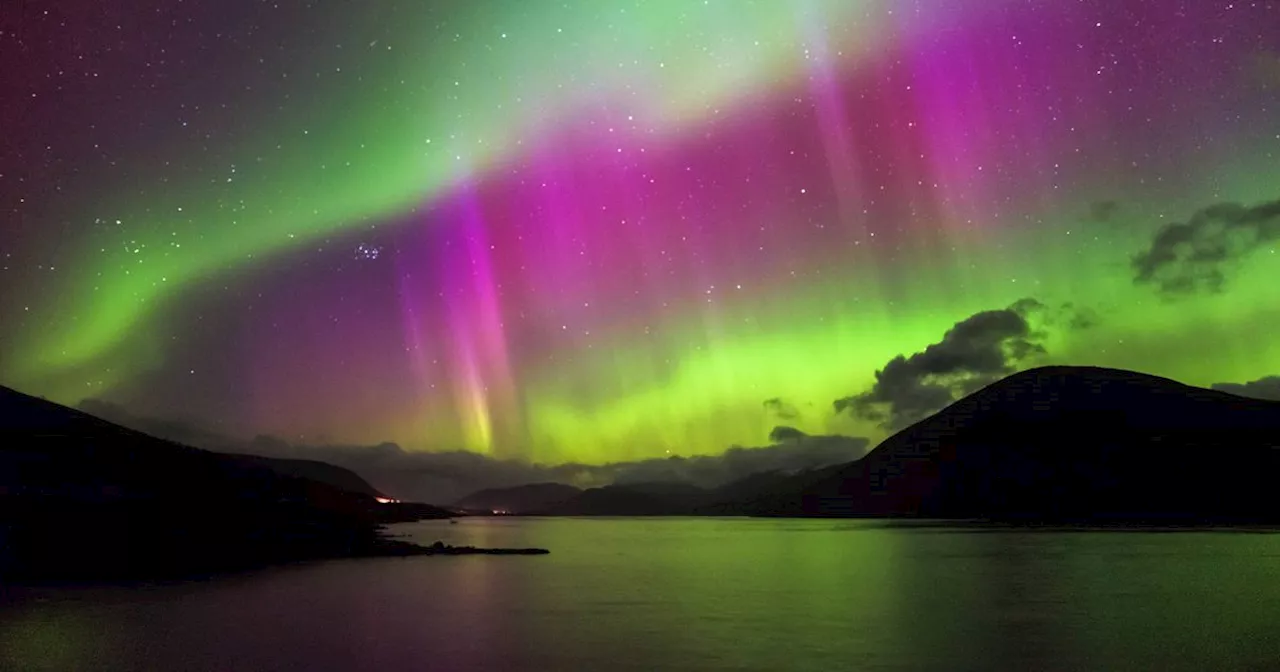 Scotland to be dazzled by Northern Lights displays in the New YearScotland is set to experience rare and enhanced visibility of the Aurora Borealis in early 2025 due to a solar maximum event. Scientists predict frequent sightings of the Northern Lights over the next year as solar flares and activity peak. This period offers a great opportunity for Scots to witness this celestial spectacle, as solar activity is expected to decrease significantly in the coming decade.
Scotland to be dazzled by Northern Lights displays in the New YearScotland is set to experience rare and enhanced visibility of the Aurora Borealis in early 2025 due to a solar maximum event. Scientists predict frequent sightings of the Northern Lights over the next year as solar flares and activity peak. This period offers a great opportunity for Scots to witness this celestial spectacle, as solar activity is expected to decrease significantly in the coming decade.
Read more »
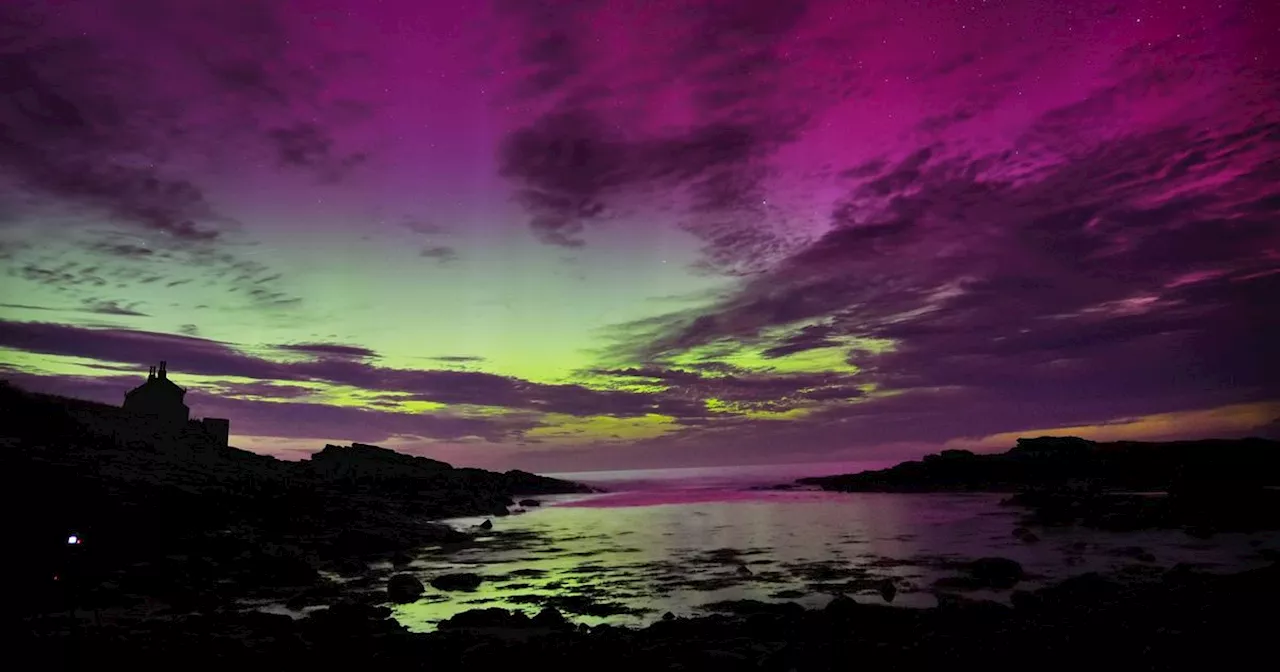 Northern Lights Could Light Up UK Skies on New Year's EveThe Met Office predicts a chance to see the aurora borealis in Scotland, northern England, and Northern Ireland on December 31st if skies are clear.
Northern Lights Could Light Up UK Skies on New Year's EveThe Met Office predicts a chance to see the aurora borealis in Scotland, northern England, and Northern Ireland on December 31st if skies are clear.
Read more »
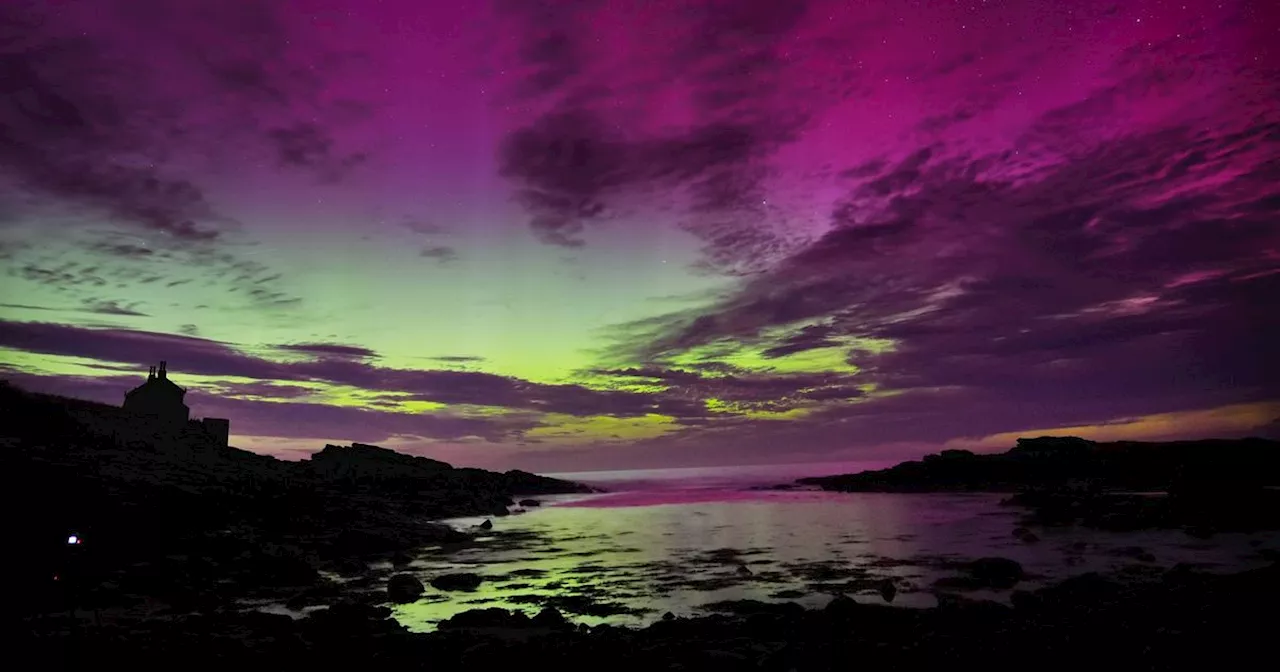 Northern Lights Could Greet New Year's Eve in UKThe Met Office predicts possible Northern Lights sightings on New Year's Eve in Scotland, northern England, and Northern Ireland if cloud cover permits.
Northern Lights Could Greet New Year's Eve in UKThe Met Office predicts possible Northern Lights sightings on New Year's Eve in Scotland, northern England, and Northern Ireland if cloud cover permits.
Read more »
